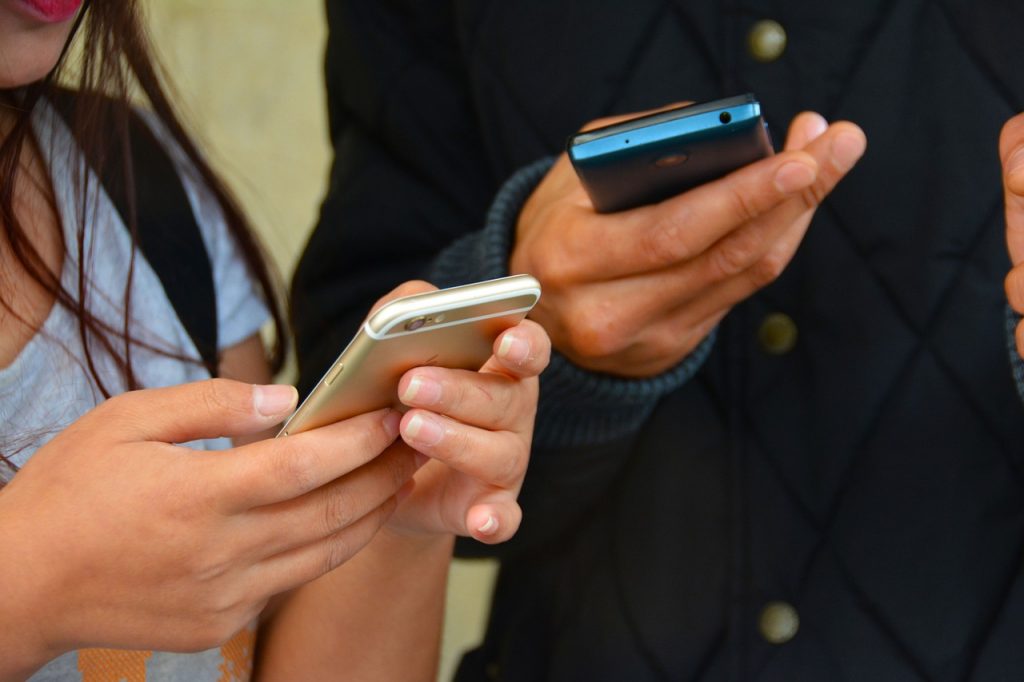We all know of claustrophobia, arachnophobia and germophobia but what about nomophobia? The recently created term refers to those who are terrified at the prospect of being without their smartphone. Although research on this is still very new, the results are not looking good, especially for teenagers.
The age of nomophobia
An online questionnaire was recently released which has been designed to indicate how dependent a user is on their smartphone. Based on a 1-7 points system, 1 as ‘strongly agree’ and 7 as ‘strongly disagree’, users can get an idea on whether they have any level of nomophobia.
The survey asks whether or not you feel anxious, uneasy or bored when unable to check text messages and social media accounts. Creator of the survey Caglar Yildirim, an assistant professor of human computer interaction, said electronic device use only becomes a problem when it starts to interfere with daily life.
Common Sense Media, a nonprofit organisation, carry out regular studies on teenage behaviour in North America and found that 50% of 12-18 year olds think they are addicted to their mobile devices. 78% of teens in the survey felt an overwhelming need to check their phones at regular intervals. 69% of parents act in a similar way, showing that although this problem is most prevalent within the young community, they are not the only people affected.
Studies showing a similar pattern have also been carried out in the UK. According to Securenvoy, 66% of the British population now have nomophobia which has risen by 13% since 2008. Women are more anxious without their phones than men but interestingly, it is men that tend to have more than one mobile phone in an effort to stay connected.
Dangers of smartphone addiction
Korea University in Seoul studied 19 teenagers diagnosed with internet/smartphone addiction as well as a further 19 teenagers that showed no signs of addiction. Images of their brain were compared with one another and the results showed significant differences.
The addicted teenagers had higher levels of a neurotransmitter known as ‘GABA’. When too much of this is present it increases the time it takes to send messages throughout the brain. This leads to a poor attention span and getting easily distracted, making it harder to focus on one task.
Yildirim stated that smartphone addiction can get in the way of relationships which makes sense considering that high levels of ‘GABA’ in the brain has also been linked to depression, anxiety, insomnia and impulsivity. It’s also no surprise that in the US, teachers think technology is hampering attention spans in the classroom. As a result, progression in school and work can be affected.
The dangers of distracted driving are well known to everyone. Studies show that most people that are distracted whilst driving say that it is because they are using their mobile phones behind the wheel. Around 1000 people are injured and 9 killed everyday in the US because of this. A study in 2010 revealed almost half of US adults admit to reading or sending text messages whilst driving and 1 in 3 teens do the same.
Reversing nomophobia
The teenagers in Korea University’s study who had elevated levels of ‘GABA’ were asked to take part in nine weeks of cognitive behavioural therapy (CBT). CBT is a type of talking therapy which attempts to change the way you think and behave. It is usually used to help people with obsessive compulsive disorder, eating disorders, depression and anxiety, as well as phobias.
Images of the teenagers brains were taken once again after the CBT course had ended. 12 out of the 19 participants had normal levels of ‘GABA’ and felt an improvement in their concentration levels.
Other evidence shows that a method of mindfulness practice such as yoga, meditation and qigong can help to improve cognitive performance which can be beneficial for cases of nomophobia.
More research is needed
Most of the data that has been collected so far point toward the same thing – smartphone addiction has negative effects on processes within the brain. Yet many clinical psychologists advise to take these results with a pinch of salt.
As of right now, there is no standardised format for determining addiction to phones and it is not recognised as a mental health problem. This makes measuring addiction very difficult and is left down to the judgement of whoever is carrying out the study.
Despite this problem, it shouldn’t be too long before this growing problem is recognised in the Diagnostic and Statistical Manual of Mental Disorders (DSM). The DSM is highly regarded by healthcare professionals all over the world as a guide to recognising, measuring and treating mental health issues. Once the DSM recognises nomophobia as an addiction, steps can be taken towards creating a detailed treatment process, specifically catered towards smartphone addiction.
